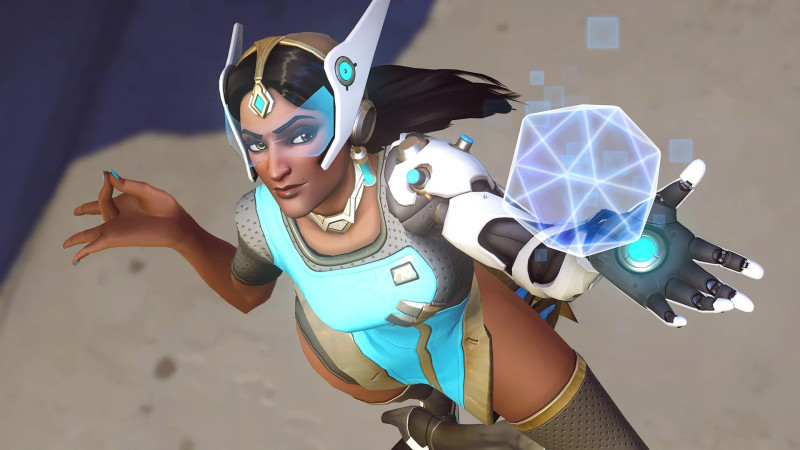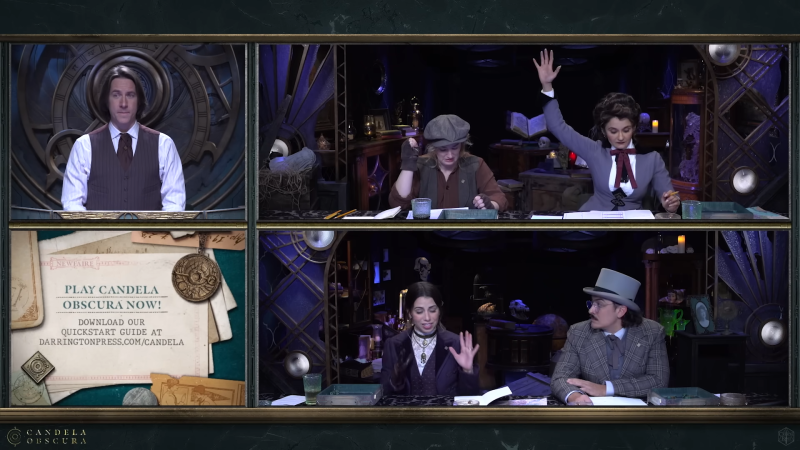From theater productions on and off Broadway to TV reveals like Ms. Marvel, actress Anjali Bhimani has carried out a little bit of every part, however readers of Game Informer most probably acknowledge her work voice appearing in video video games. She’s finest referred to as Symmetra in Overwatch, which is a sport function many younger voice actors would attempt their total careers to get. Bhimani lucked out; it was the primary time she ever acted in a sport.
“All I knew is I’m doing the new game for Blizzard,” Bhimani says. “And I knew that Blizzard was, you know, no slouch. They’ve done a lot of really cool things before, so chances were this was gonna be really cool. But I had no idea. I don’t think anyone really did.”

Symmetra in Overwatch
While Symmetra was initially crafted by a room of writers, Bhimani does say there was a component of collaboration between her and the inventive group as they discovered Symmetra’s voice. She likened it to her time in theater – the early periods spent constructing the character had been like a rehearsal interval. Months later, when the sport launched, it was like opening night time.
The relaxation is historical past. Overwatch turned an enormous success, thanks largely to its colourful forged of now-iconic characters voiced by wonderful voice expertise. Bhimani discovered numerous success on this area of interest, however why did it take her twenty years to enter the scene within the first place?
“I was a gamer from a very early age,” she remembers. “And then there was a period of time that I refer to as ‘the dark days of gaming’ when I was like, ‘I should be more serious and not into games.’ I don’t know why I ever did that.”
Overwatch’s reception from its newfound large group inspired Bhimani to have interaction with the medium in earnest once more. Since then, she’s been capable of seem in all types of video games, together with Apex Legends (the place she performs Rampart) and NPCs in Marvel’s Spider-Man 2, Starfield, and Diablo IV.

Bhimani volunteers to roll throughout an episode of Candela Obscura
This re-entry into the world of video games wasn’t restricted to the display screen, nonetheless. After encountering Critical Role stars Matt Mercer and Marisha Ray at an Overwatch meetup, Bhimani professed her love for Dungeons & Dragons, which she’d performed as a toddler. She did a rundown of her historical past for me, as effectively.
“My brother, in one of his many moments of genius, gifted me a basic set when I was eight, and I fell in love with it,” she tells me. “So I did the first, like, solo adventure in the book. And I was like, ‘Wait, that’s it? I need more. I want to do more.’ So I bogarted his second edition books, devoured them, [and] started playing with friends in school. And that was pretty much that; it was it off to the races, you know? We would play as often as we could.”
Post-high college it was tougher for her to discover a group, particularly in an period the place the sport wasn’t as mainstream as it’s now. But upon assembly and befriending Mercer and Ray, Bhimani had discovered a gaggle to play with once more, ultimately collaborating with them years later. Her return to tabletop RPGs was identical to her return to video video games in two methods: she returned as a performer, doing precise play one-shots and miniseries, and now that she was again, she questioned why she ever stopped enjoying within the first place.
After just a few years enjoying at tables for each Critical Role and Dimension 20, two of the most important D&D reveals on the market, Bhimani and a few colleagues made the transfer to begin their very own present: DesiQuest. It’s a easy idea: a narrative set in a South Asian-inspired fantasy world informed by a completely South Asian forged. Bhimani says she first heard the pitch from Jasmine Bhullar, a dungeon grasp within the house, years earlier than the mission was formally within the works.
“When I first met Jasmine, we were doing a one-shot for Critical Role, and she said, […] ‘You know, getting to play with another Indian person is so rare. I really wish that we could sit at the table with all Indian people and do something like that.’ I was like, ‘Dude, sign me up.'” Unfortunately, the pandemic hit, and the mission was placed on maintain. A number of years later, she was contacted by producers Sandeep Parikh and Anand Shah to see if she could be curious about becoming a member of the mission. “They were starting to pitch it to me,” Bhimani laughs. “And I was like, ‘Oh, I said yes to this years ago before you got involved, like yeah, let’s go.'”
All of those current initiatives create a little bit of a theme with Bhimani’s current profession, and it is one she’s effectively conscious of. She says lately, she’s realized to ask herself, “Hey, are you creating art just because it’s what other people want, or are you creating what you want to be creating?”
“It’s a weird conundrum to be,” she continues. “There’s this bizarre paradox. Because on one hand, you need to create issues that you just wish to create, no matter what different individuals assume. But then again, you additionally wish to create issues that individuals are really going to see and soak up and luxuriate in.
“I think the inspiration to create something is so pure, and [you should find] a way to make sure that, while you are making it for other people, you are not molding it into a shape just because you think that’s what they want to see.”




